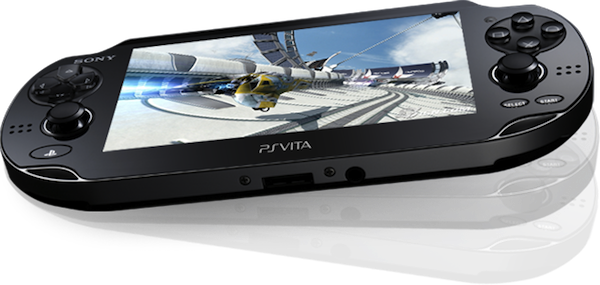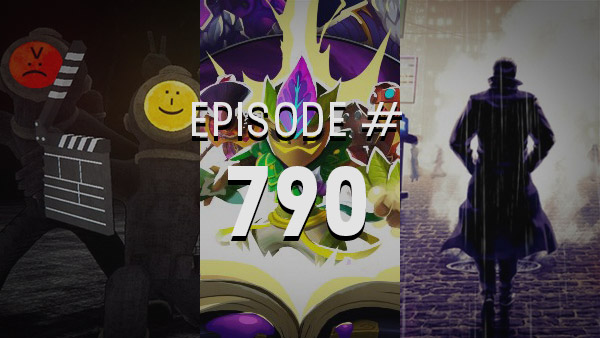Your login information returned multiple users. Please select the user you would like to log in as and re-type in your password.

While Nick has made his decision to buy Sony’s next handheld, the PlayStation Vita, I am less sure on the device. Technically, it appears to be well spec’d and well made, but my issues lie in things outside of the hardware—hardware is where Sony usually does excellent work. My issues with it lie in the smaller details, and maybe even the larger ideology of the home console experience on a portable.
It is somewhat amusing to think back on the response of the pricing of the Vita when it was first announced—it was largely positive. The 3DS was announced for the same price and, at the time, it seemed like the better spec’d Vita would release with price parity, at around 250 dollars. Now though, that 250 dollars isn’t on par. Nintendo took drastic measures and cut the price of the 3DS, down from the original 250 dollars to a rounded 170. Now instead of being the same price, the Vita has an 80 dollar premium over the 3DS—a sizable percentage of the overall cost.
While the Vita may offer more in terms of technical power or even more in the sense of it being larger hardware, it still requires one more thing to be actually complete: a memory card. A memory card is required for downloadable games and for many games to store their save data, though Sony have said that some games will be able to save to the game cartridge itself. This, for me, has been one of the biggest stumbling blocks for the Vita. It is somewhat baffling that a media device launching in 2012 has no embedded storage. Less baffling (given Sony’s history), though not any less disappointing, is the decision to have the external memory cards be a proprietary format. Instead of using an electronics industry standard like SD cards, Sony have developed its own format.
Sony have stated this is both for performance reasons and to prevent piracy (both fine goals to have) but both reasons seem like suspicious justification. The SD standard has not been hacked at this point and has provisions to be locked to a device as recently seen in Windows Phone 7 devices. Locking the SD card to the device does exactly what Sony wants to do with the proprietary format: prevent the memory card from being read as a mass storage device, thus preventing files that could possibly compromise the system from being loaded onto the memory card. A compromised system could allow home-brewed software, but could also allow pirated games.
The concerns for speed standards is more legitimate because the varying classes that exist in the SD standard. A user could possibly purchase a card that is too slow for ideal performance and thus an unsatisfactory experience is had. Still, Sony could let the user know what the minimum class requirement is and the SD standard even allows the device to reject cards that do not meet the class rating specified by the manufacturer of the device.
Given these facts it is hard to not jump to the cynical conclusion that these memory cards are proprietary because it allows Sony to turn a large profit on the memory card accessories it sells. The disparity between the prices of the Vita memory cards (25 dollars for 4 GB; 40 for 8 GB; 70 for 16 GB; 120 for 32 GB) and seemingly equivalent Class 10 MicroSD cards (~6 dollars for 4 GB; ~12 for 8 GB; ~23 for 16 GB; ~45 for 32 GB) is huge. Profit is not a bad thing but here Sony seems to be creating a closed market that has little benefit for anyone other than themselves.
The other figures that concern me are the prices of games. In going for a home console in your hand, the prices of the games are near home console price as well. Similar to the 3DS, Vita game prices will range from around 30 dollars for a game like Little Deviants and go up to 50 dollars for Uncharted: Golden Abyss. While allowing more variance in pricing is a good thing, the prices are generally higher. The 3DS shares this problem but regardless, portable gaming for me has always been a more affordable way to buy and play games and that is eroding away while (for better or worse) cheap smartphone games are on the rise. This void could be filled by the downloadable space on the Vita but, at launch, there has been little word on what will be there other than retail priced games.
And really, I’m not sure that I want many retail console games on a portable anymore. I don’t really think I want the experience of a home console replicated. While the home console-like experience can work on a portable, the games need to remember it is on a portable system despite whatever kinds of transfarring magic it might be able to do. There is an inherent change in form that can’t be ignored. It would be foolish to write the Vita as dead on arrival but the system is unappealing to me right now. For me to buy a Vita there needs to be some major changes in the memory card policies (or at least pricing) and there needs to be more games with design philosophies that are something other than replicating what we already have.




Comments
12 years, 2 months ago
I have never bought any piece of gaming hardware at launch regardless of how appealing or non-appealing it might be. To me the only thing that matters is software support and whilst the Vita might have an impressive launch/soon-after-launch line-up in terms of software, there's no way to know whether the platform will take off and what the level of support for it will be in say, 1-2 years time.
I'm interested in the Vita, but I'm going to sit back for a while after it launch and see how it progresses.
12 years, 2 months ago
great article ben! It explains one of the reasons why I probably wont be getting a vita day 1. Even though the launch line up is great, I can't see myself spend 25 dollars on a memory card which is the smallest one. If i get the vita, 4 gig card, and say uncharted....thats like 325$ right there. Hmm I could get a portable, or I can save up for one of the next gen systems.....decisions decisions
12 years, 2 months ago
I'm sorry, but the whole "I don't want a home console experience on a handheld" is a dumb argument against any portable device. I'm tired of hearing this excuse. There are people who do enjoy taking games on the go. There are games that benefit from this. Home console games can learn a thing or two about the portable experience. For example: save states. Say I'm playing a game on my 3DS on the bus. I reach my stop. I'm in the middle of an important battle. Oh, I'll just close my 3DS and pick up where I left off. The Vita has a similar feature and so did the PSP. Who wouldn't want that on home consoles? Heck PC's have had something similar in quick saves. I really dig what Sony and Nintendo are doing with remote play features. Gamers today need to stop whining about change and embrace innovation. Instead of poo pooing new ideas that seem "gimmicky". It seems to me that the gaming media has indeed shaped the way people think and the way they choose their purchases.
Sorry /rant mode off.
12 years, 2 months ago
Sony is creating their own market for memory cards, eh? Why does this sound so familiar. Ah, right! Because Microsoft has done this with the Xbox 360 since it was released, and the average consumer is too stupid to realize how overpriced it is.
Looks like we'll be seeing this lovely model for monies again.
12 years, 2 months ago
Well, Ill probably pick one up.
12 years, 2 months ago
While I agree that the memory cards are overpriced I can understand why they have them. Just using SD cards does increase the risk of piracy (look at the R4 for the DS) and if they did put that memory internal it would increase the cost of the unit itself further contributing to a larger gap in the price between the Vita and the DS.
As for console games on handhelds, I agree to a point. There are certainly cases to be made for having the ability to play console games on the go and that is great, especially with the integration Sony is showing in some titles between the Vita and the PS3. However for a handheld to thrive it needs to have unique content that you can't get on the console. This is what the DS did so well by using the touchscreen to make games you couldn't play anywhere else. The onus is on the developers to make unique content using the Vitas features (touchscreen, touch panel, gyro, multi-point touch, etc...) that makes the handheld viable instead of falling into the same trap they did with the PSP where there were few things you couldn't get anywhere else.
12 years, 2 months ago
Who the fuck is Ben Afford